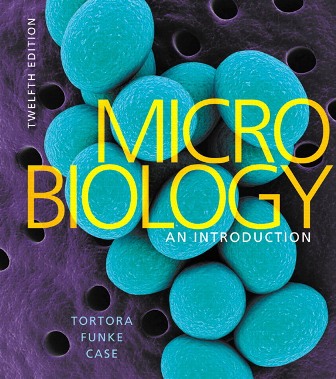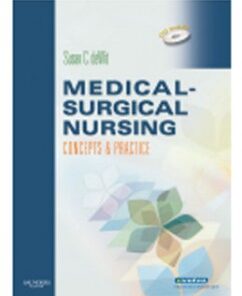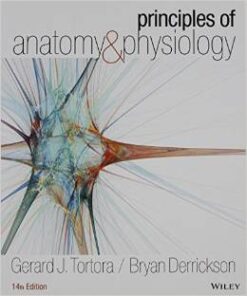Test Bank for Microbiology: An Introduction, 12th Edition, Gerard J. Tortora, Berdell R. Funke Christine L. Case
$55.00
Test Bank for Microbiology: An Introduction, 12th Edition, Gerard J. Tortora, Berdell R. Funke, Christine L. Case,
Test Bank for Microbiology: An Introduction, 12th Edition, Gerard J. Tortora, Berdell R. Funke, Christine L. Case,
Table of Contents
Part One: Fundamentals of Microbiology
Ch 1: The Microbial World and You
Ch 2: Chemical Principles
Ch 3: Observing Microorganisms through a Microscope
Ch 4: Functional Anatomy of Prokaryotic and Eukaryotic Cells
Ch 5: Microbial Metabolism
Ch 6: Microbial Growth
Ch 7: The Control of Microbial Growth
Ch 8: Microbial Genetics
Ch 9: Biotechnology and DNA Technology
Part Two: A Survey of the Microbial World
Ch 10: Classification of Microorganisms
Ch 11: The Prokaryotes: Domains Bacteria and Archaea
Ch 12: The Eukaryotes: Fungi, Algae, Protozoa, and Helminths
Ch 13: Viruses, Viroids, and Prions
Part Three: Interaction between Microbe and Host
Ch 14: Principles of Disease and Epidemiology
Ch 15: Microbial Mechanisms of Pathogenicity
Ch 16: Innate Immunity: Nonspecific Defenses of the Host
Ch 17: Adaptive Immunity: Specific Defenses of the Host
Ch 18: Practical Applications of Immunology
Ch 19: Disorders Associated with the Immune System
Ch 20: Antimicrobial Drugs
Part Four Microorganisms and Human Disease
Ch 21: Microbial Diseases of the Skin and Eyes
Ch 22: Microbial Diseases of the Nervous System
Ch 23: Microbial Diseases of the Cardiovascular and Lymphatic Systems
Ch 24: Microbial Diseases of the Respiratory System
Ch 25: Microbial Diseases of the Digestive System
Ch 26: Microbial Disease of the Urinary and Reproductive Systems
Part Five: Environmental and Applied Microbiology
Ch 27: Environmental Microbiology
Ch 28: Applied and Industrial Microbiology
Appendix A: Metabolic Pathways
Appendix B: Exponents, Exponential Notation, Logarithms, and Generation Time
Appendix C: Methods for Taking Clinical Samples
Appendix D: Pronunciation of Scientific Names
Appendix E: Word Roots Used in Microbiology
Appendix F: Classification of Bacteria According to Bergey’s Manual












Reviews
There are no reviews yet.